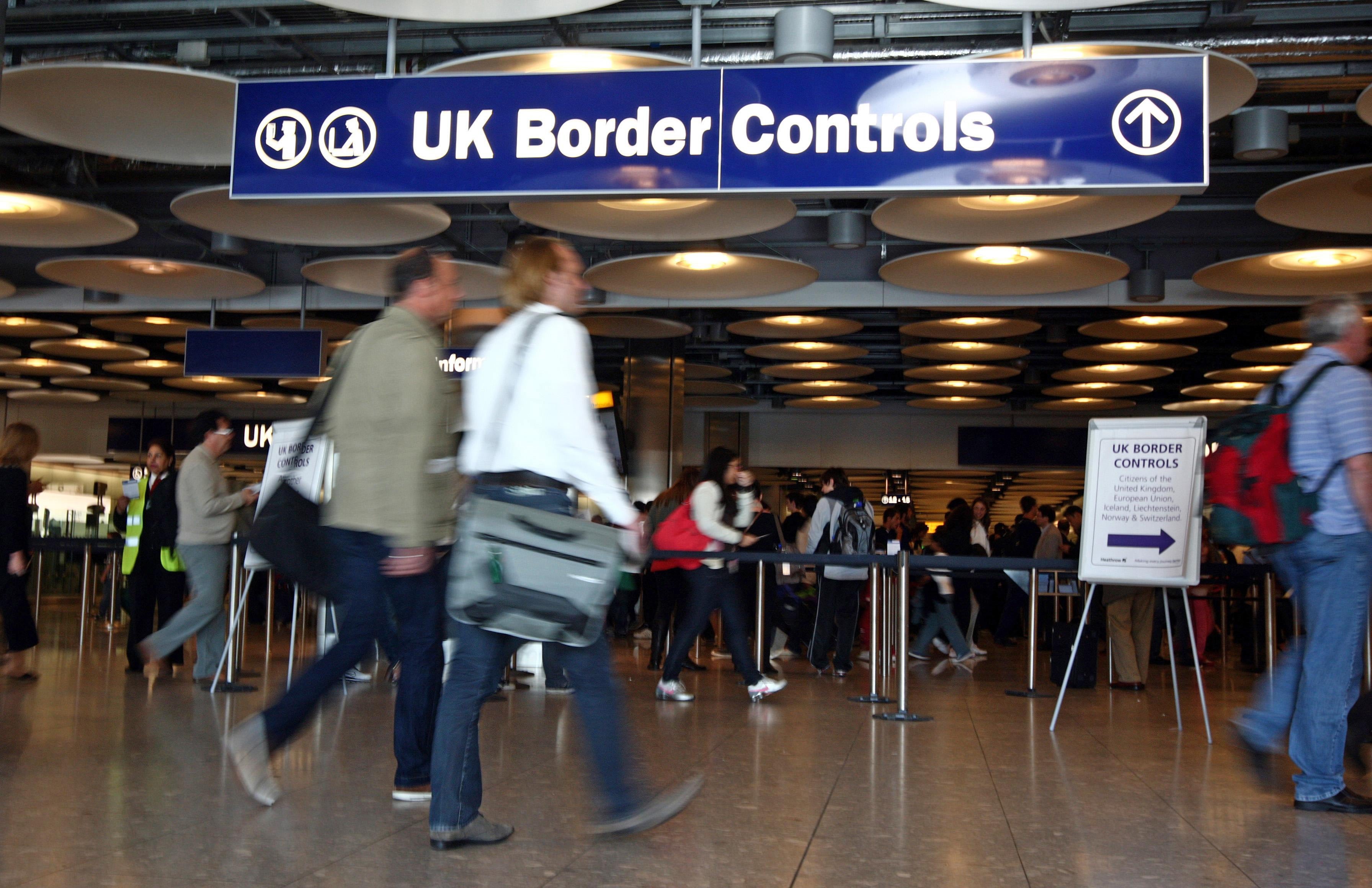Huge Heathrow queues blamed on ‘nightmare’ new Border Force rota
Passengers at the London airport have reported hours-long queues on several occasions since May

Your support helps us to tell the story
From reproductive rights to climate change to Big Tech, The Independent is on the ground when the story is developing. Whether it's investigating the financials of Elon Musk's pro-Trump PAC or producing our latest documentary, 'The A Word', which shines a light on the American women fighting for reproductive rights, we know how important it is to parse out the facts from the messaging.
At such a critical moment in US history, we need reporters on the ground. Your donation allows us to keep sending journalists to speak to both sides of the story.
The Independent is trusted by Americans across the entire political spectrum. And unlike many other quality news outlets, we choose not to lock Americans out of our reporting and analysis with paywalls. We believe quality journalism should be available to everyone, paid for by those who can afford it.
Your support makes all the difference.Lengthy queues at Heathrow airport this year have been blamed on a change to Border Force guards’ working patterns, with one employee telling press a “nightmare” new rota is to blame.
An unnamed Border Force official told the Daily Mail: “The rotas are a nightmare. They made all officers extend their shifts by two hours. So an already long 10.25 hour shift became 12.25 hours.
“Deputy director at Heathrow, Raj Johal, introduced these new rosters. They are highly unpopular amongst the staff, higher officers, senior officers and including the rostering and resource management department.”
The source told the Mail that guards are suffering from exhaustion as a result, with 20 per cent of staff calling in sick during August, whereas on a normal day the absence rate is around half that.
They warned: “It’s only going to get worse”.
Passengers have reported unusually long queues at Heathrow and other airports this spring and summer.
At the beginning of September, customers complained of waiting times of up to five hours, as well as a lack of social distancing and access to toilets and water during a process they described as “incompetent” and “ridiculous”.
On 5 September, travellers reported passengers fainting, as well as some arrivals being stuck on planes for over an hour after arrival because there physically wasn’t room to let them into the airport.
At the time the Home Office said that the situation at Heathrow was “unacceptable”.
Meanwhile, Heathrow officials blamed Border Force, saying that they knew there would be extra demand and were “very disappointed” that they did not have enough staff on duty.
On Friday, an IT failure that put the airport’s e-gates out of action also saw mega-queues build up.
The Union for Borders, Immigration and Customs (ISU) agreed that underfunding and staff shortages had taken their toll on Border Force operations.
A spokesperson for the ISU said: “There has been some limited recruitment into Heathrow in recent months but it has barely scratched the surface of the chronic underfunding at Heathrow.
“Plus it takes 12 months to train a border officer and face to face training has been impacted by the pandemic.
“Staff are, understandably, voting with their feet and leaving the business; either to more supportive roles elsewhere or all together. The cumulative impact has been an almost perfect storm.”
A Home Office spokesperson said: “It is inaccurate to say changes to Border Force staff rotas caused a spike in sickness in August. The changes were only introduced on 22 August, and were made following extensive consultation with staff and the trade unions, including the Immigration Service Union, to improve our operational efficiency and effectiveness.
“Our utmost priority is protecting the safety and health of the public. We will never compromise on border security and continue to fulfil our vital function of keeping the border secure and provide the resources needed to do this.
“Border Force regularly reviews staffing requirements to ensure resources are deployed flexibly as and when required to carry out the vital function of border security.”
Join our commenting forum
Join thought-provoking conversations, follow other Independent readers and see their replies
Comments